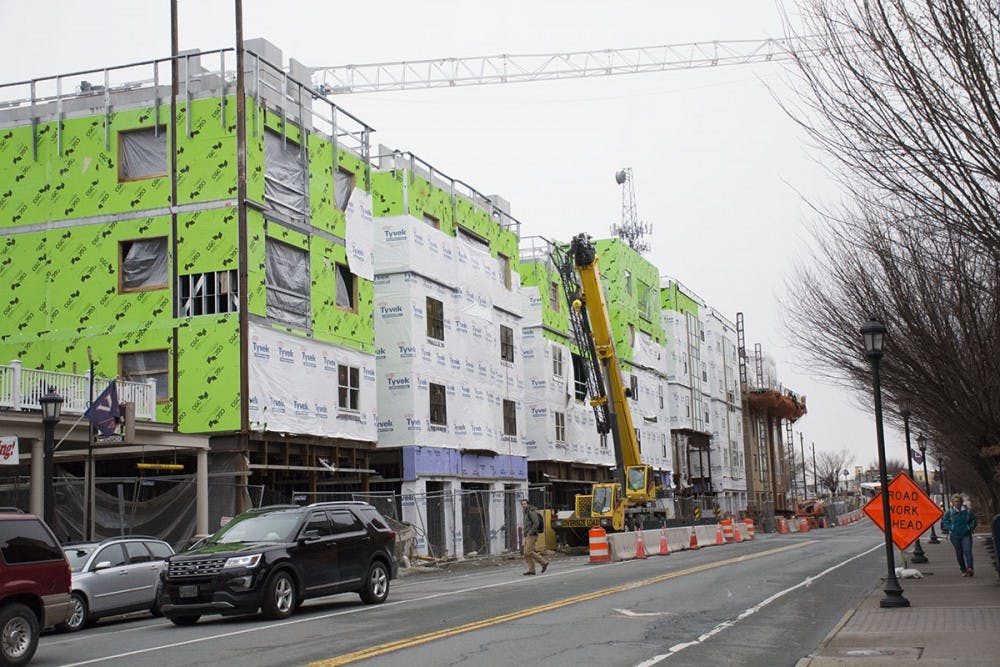The University is hosting a conference on public housing and gentrification in Charlottesville alongside the Public Housing Association of Residents, the Legal Aid Justice Center, the Charlottesville Low Income Housing Coalition and the Grassroots Humanities Collaboration. The conference — which focuses on addressing the lack of affordable housing Charlottesville — will be held from 9:30 a.m. to 6 p.m. March 17 at City Space in downtown Charlottesville.
The summit seeks to answer two major questions — how can the City implement a housing or land-use policy designed to correct structural inequalities, and how can the University help in attaining housing equity for all Charlottesville residents?
Laura Goldblatt, a postdoctoral fellow at the University, is the primary organizer of the event. Goldblatt is an activist who focuses on poverty-related issues in the Charlottesville community and explained how access to affordable housing is an large issue in Charlottesville.
“There’s not enough affordable housing in Charlottesville, drastically not enough, especially for people in the extremely low income category,” Goldblatt said. “The way that zoning works in the City of Charlottesville — if you need affordable housing, there are only a select number of neighborhoods you can live in … if people want to send their kids to some of the better schools in the area, it may be impossible to do so.”
Charlottesville’s zoning map reduces the availability of multifamily units, especially downtown or near the University, opting instead to only allow one or two family residences. As a possible result, Charlottesville has considerably high costs of living — among Virginia cities, Charlottesville has the second highest “cost burden,” or number of citizens putting more than 30 percent of their income towards housing, according to a report cited in a 2013 C-VILLE Weekly article.
Due to the fact that the University is the largest employer in both the City of Charlottesville and Albemarle County, the organizers of the event believe the University has a responsibility to the City’s residents to work towards housing fairness.
Goldblatt said one way the University can address housing inequality for residents is through building more on-Grounds student lodging.
“The University says it’s opposed to or impossible to build more on-Grounds student housing,” Goldblatt said. “There are only a few neighborhoods that are zoned for multi-family units and those happen to be around the University, and those happen to be the places where luxury student apartments show up … They are encouraging gentrification in the very communities that are most vulnerable to gentrification.”
Such projects include The Flats apartment building, The Standard or the proposed West2nd development — housing that targets students or high-income residents over less affluent groups.
However, the University is currently moving forward with plans to redevelop Brandon Avenue to include a 300-bed upperclassmen student housing complex that is expected be ready for occupancy by fall 2019. The University intends to redesign the street and its adjacent properties as part of a master plan to develop the area as a “green street” and connect the South Lawn complex to the U.Va. Health System.
The colloquium will consist of four panels and an assigned small group discussion. For the panels, the conference organizers invited several high-profile guests, including faculty from the University of California at Santa Barbara and Princeton University as well as representatives from the Chicago Anti-Eviction Campaign, the National Housing Law Project and the Right to the City Alliance.
There will also be local speakers, including representatives from the University, PHAR and the City.
Goldblatt spoke about bringing in both national experts and local community members and leaders to the conference in order to provide a variety of perspectives.
“We invited [some people] because they are national experts in housing policy and have been part of campaigns that have been successful in terms of tenants rights or rent-control without it being necessarily rent-control,” Goldblatt said. “One of the real goals of inviting people is trying to find a mix of organizers, academics and activists who may be different pieces of the puzzle.”
Registration for the event — optional, but preferred — is available at http://housing-justice.blogspot.com.
Representatives from PHAR did not respond to request for comment and representatives from the Legal Aid Justice Center declined or did not return request for comment.
This article has been updated with information about the University’s redevelopment of Brandon Avenue







